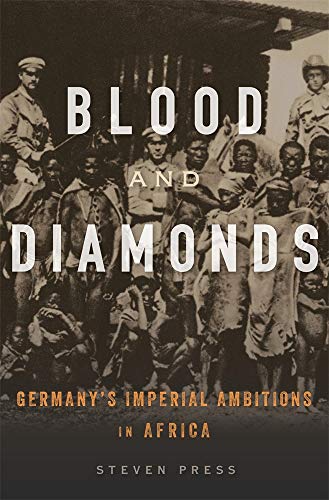
Blood and Diamonds: Germany’s Imperial Ambitions in Africa PDF
Preview Blood and Diamonds: Germany’s Imperial Ambitions in Africa
Diamonds have long been bloody. A new history shows how Germany’s ruthless African empire brought diamond rings to retail display cases in America―at the cost of African lives.
Since the late 1990s, activists have campaigned to remove “conflict diamonds” from jewelry shops and department stores. But if the problem of conflict diamonds―gems extracted from war zones―has only recently generated attention, it is not a new one. Nor are conflict diamonds an exception in an otherwise honest industry. The modern diamond business, Steven Press shows, owes its origins to imperial wars and has never escaped its legacy of exploitation.
In Blood and Diamonds, Press traces the interaction of the mass-market diamond and German colonial domination in Africa. Starting in the 1880s, Germans hunted for diamonds in Southwest Africa. In the decades that followed, Germans waged brutal wars to control the territory, culminating in the genocide of the Herero and Nama peoples and the unearthing of vast mineral riches. Press follows the trail of the diamonds from the sands of the Namib Desert to government ministries and corporate boardrooms in Berlin and London and on to the retail counters of New York and Chicago. As Africans working in terrifying conditions extracted unprecedented supplies of diamonds, European cartels maintained the illusion that the stones were scarce, propelling the nascent US market for diamond engagement rings. Convinced by advertisers that diamonds were both valuable and romantically significant, American purchasers unwittingly funded German imperial ambitions into the era of the world wars.
Amid today’s global frenzy of mass consumption, Press’s history offers an unsettling reminder that cheap luxury often depends on an alliance between corporate power and state violence.
